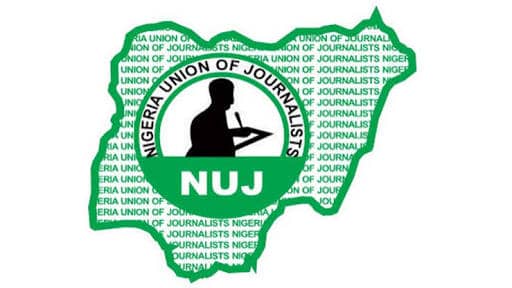By Omotayo Ayanda
On July 31, 2024, the Kwara State Council of the Nigeria Union of Journalists (NUJ) went to the polls in what should have been a unifying triennial conference. That election was expected to renew leadership, inspire confidence, and strengthen unity among journalists in the state. Instead, it became the beginning of a crisis that has since shaken the union to its core.
What followed was not a celebration of democracy but a spiral of petitions, lawsuits, chapel divisions, social media battles, and accusations of constitutional breaches. Instead of leaving the election ground stronger, Kwara NUJ left fractured, bitter, and uncertain.
Many members point fingers at the national leadership under Comrade Chris Isiguzo, then NUJ President. His handling of the process, through silence, controversial interventions, and perceived partiality, deepened the cracks and allowed the council to descend into chaos.
The July 31 election was riddled with complaints that cast doubt on its credibility:
Disenfranchisement of members: Journalists who had paid their dues and met requirements were denied the right to vote. For them, the very foundation of democratic participation was stolen.
Compromised ballot process: Reports emerged that voters’ names were printed directly on ballot papers. This violated secrecy, intimidated voters, and compromised fairness.
Biased screening exercise: While some qualified journalists were screened out under questionable circumstances, others were cleared without due process.
Excessive levies: Heavy, compulsory levies were imposed, excluding some members and creating an uneven playing field.
Soon after the election, petitions detailing these irregularities were submitted to the NUJ national secretariat. But the silence from Abuja was deafening. No investigation, no reconciliation, no mediation. For many members, this silence felt like complicity. When the national leadership failed to act, aggrieved members turned to the courts for justice.
Instead of healing, the crisis only widened. Suspensions without constitutional backing: Prominent journalists, including Dare Akogun of Sobi FM, Fadeyi Babajide of Federal Information, and the late Saka Laro of the Correspondents’ Chapel, were suspended. These suspensions were illegal, as only the National Executive Council has the constitutional power to sanction members. Sadly, Saka Laro’s suspension was never lifted until his death.
Imposition of illegal levies: A ₦10,000 “registration fee” was enforced on members, only to be later nullified by the national secretariat.
Harassment of chapels: Chapels faced threats of delisting, while dissenting members were expelled from official WhatsApp platforms simply for speaking their minds.
Continuous violation of the NUJ Constitution: The very document meant to guide and protect members was repeatedly ignored, leaving the union vulnerable and divided.
In March 2025, the National Industrial Court dismissed the legal challenge. But far from restoring peace, the ruling only fueled further appeals. Trust remained broken, and Kwara NUJ continued under a cloud of uncertainty and illegitimacy.
Kwara NUJ’s troubles are not isolated. They reflect a pattern that has long followed the national leadership of Chris Isiguzo. His own emergence as NUJ President in Abeokuta in 2018 was controversial. Series of allegations, which were swept under the carpet trailed his victory. For many, the same shadows of controversy resurfaced in Kwara during the 2024 election.
This pattern suggests a deeper problem: when leadership fails to enforce transparency and fairness, distrust spreads, and the union suffers.
What should have been a family election became a bitter war. Instead of celebrating democracy, the council descended into factional battles that split the union into warring camps, silenced dissenting voices through intimidation, exposed the council to public ridicule and loss of credibility and distracted members from NUJ’s true mission, defending press freedom, supporting journalists, and promoting professional excellence.
The July 31 election did not only divide us; it destabilised the entire council and damaged public confidence in our union.
We must be honest about where the rain began to beat us. The July 31 election and the failures of leadership under Chris Isiguzo destabilised Kwara NUJ. But we must also admit that dwelling on past wounds will not rebuild the house.
The petitions, lawsuits, and endless divisions have drained our strength. If this continues, Kwara NUJ risks collapsing altogether, with journalism in the state as the ultimate casualty.
Now is the time to choose healing. To do that, we must return to the NUJ Constitution as our supreme guide, end all unconstitutional suspensions, levies, and exclusions, reconcile with one another, reinstate silenced members, and restore the unity of chapels and redirect our energy toward training, welfare, and advocacy, the true work of our union.
The July 31, 2024 election left us with pain, but also with lessons. Never again must Kwara NUJ be destabilised by manipulation, silence, or partiality from national leadership.
We are journalists, our power is in truth, our survival is in unity, and our dignity is in courage. Kwara NUJ must rise again, together, stronger, and more determined to defend journalism and the values that brought us together in the first place.
